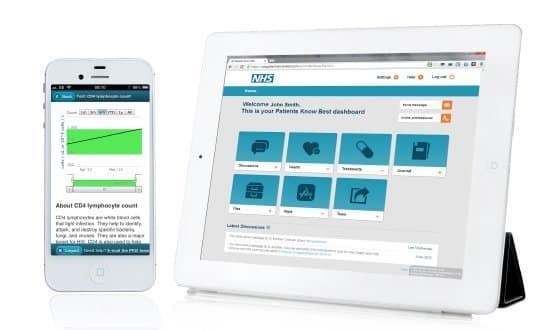Peterborough and Stamford NHS Trust is encouraging the families of children with epilepsy to upload videos of their seizures to Patients Know Best to help with diagnosis.
Speaking to Digital Health News, Dr Richard Brown, consultant paediatrician at the trust, said the system was having a significant impact on patient care as it makes it easier for families to share video footage, which is “crucial to a large portion of epilepsy diagnosis."
Brown said: “It’s improved our ability to discriminate between epilepsy and non-epilepsy. And where it is epilepsy, it’s improved our ability to treat it.”
Peterborough and Stamford went live with Patients Know Best – a patient-controlled electronic medical record – in March 2015.
The ability to upload videos is just one aspect of its record, and it was an idea of the trust’s IT team to use the tool to support epilepsy diagnosis. So far 70 neurology patients have signed up to the system and clinicians have seen approximately 60 videos.
Brown explained the importance that video footage plays in diagnosing the condition, mentioning that “there is no test for epilepsy."
“A lot of people think brainwave tests help diagnosis. But usually that’s not the case; they help us to classify it but the diagnostic tool really is video.”
However, Brown added that there were several “obstacles” in the way of people who used smartphones and tablets to take videos, such as problems with the hospital email system’s ability to handle large file sizes and worries about information governance.
Showing videos in person is also often impractical, says Brown, leading to delays in getting footage to clinicians and discouraging people from sharing multiple videos with doctors. “We get information slower than expected in the information age.”
By using Patients Know Best, Brown says families now have a secure system to upload videos that doctors can then view, provided the patient has granted them access to their record.
“They can send information in at speed of thought. And we are able to review it in a timely fashion; usually within hours or couple of days.”
As well as making it easier to share videos, Brown said that Patients Know Best also allows patients to share several pieces of footage, which can help with diagnosis.
“One of them may be a light bulb moment. So maybe we can see the beginning of the seizure and work out it is a focal seizure rather than a generalised seizure.
“That changes whole perspective on how treating patients. That could make difference between continuing to try treating a patient with drugs or to send them for an epilepsy referral.”
Brown also said the trust plans to start using more of the capabilities of Patients Know Best to support its neurology patients, such as documenting how many seizures a paint has and the side effects of medication. “It has the potential to be extremely useful and we will be using features more in future.”
The trust is expanding the use of the system to other areas, including inflammatory bowel disease, where it will be used to improve the treatment planning and monitoring of patients.
Robert Dennis, consultant colorectal surgeon, said: “We are using a different element of the Patients Know Best system where patients report their signs and symptoms, which we check regularly to identify markers that indicate they may require a clinical intervention.”
“This system will provide a consistent and accurate monitoring of a patient's signs and symptoms and it will mean we can pick up issues earlier and avoid the patient having to attend hospital as an emergency or when requiring urgent treatment.”

